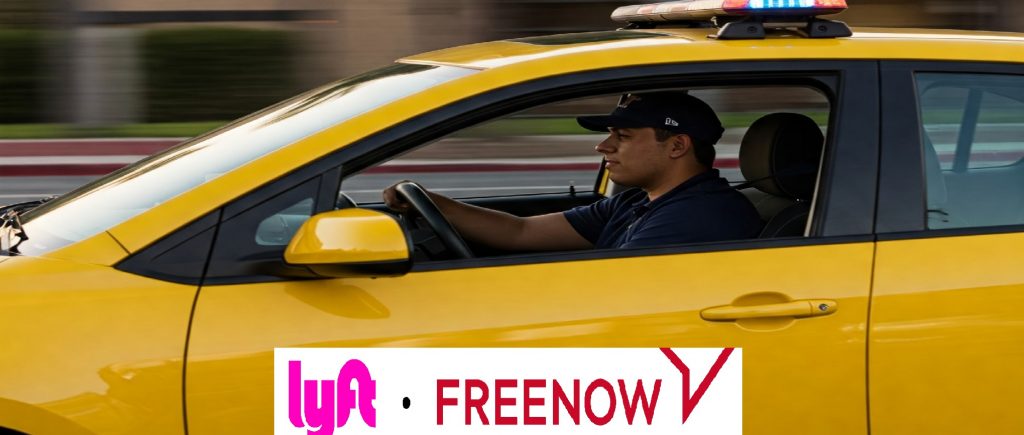How Lyft’s strategic purchase of FreeNow nearly doubles its global reach and sets the stage for fierce competition with Uber and Bolt in Europe.
Lyft’s European Leap: The FreeNow Acquisition Explained
Lyft, long recognized as a major force in North America’s ride-hailing industry, is making its most ambitious international move yet. The company has agreed to acquire FreeNow, a leading European mobility platform, from BMW and Mercedes-Benz for approximately $198 million. This deal will see Lyft operating in over 150 cities across nine European countries, including major hubs like London, Paris, Frankfurt, and Milan.
This acquisition nearly doubles Lyft’s addressable market, allowing it to serve more than 50 million riders annually across 11 countries in North America and Europe. With the European ride-hailing market expected to reach $23.86 billion by 2029, Lyft’s entry comes at a time of significant opportunity and heightened competition.
Why FreeNow? Strategic Fit and Market Impact
FreeNow is not just another ride-hailing app. It is Europe’s leading taxi aggregator, with about 90% of its gross bookings in 2024 coming from taxi rides. The company has a strong local presence and deep relationships with regulators, unions, and taxi fleet operatorsa crucial advantage in Europe’s highly regulated urban mobility landscape.
In 2024, FreeNow achieved a 13% year-on-year revenue increase and reached break-even status, largely due to its renewed focus on the taxi business. This operational turnaround makes FreeNow a valuable asset for Lyft, which is aiming to diversify its revenue streams and boost profitability.
“We found the perfect partner in FreeNow and can learn a lot from the team. FreeNow’s local-first approach mirrors Lyft’s values and embodies our purposeto serve and connect,” said David Risher, CEO of Lyft.
Lyft’s Growth Ambitions and Competitive Landscape
Lyft’s acquisition of FreeNow is a direct challenge to established European players like Uber and Bolt. Uber has long dominated the global ride-hailing market with a diversified business model, including food delivery and freight logistics. Bolt, meanwhile, has rapidly expanded its footprint across Europe, offering both ride-hailing and micromobility services.
| Company | Core Markets | 2024 Annual Gross Bookings | Business Model Focus | Notable Strengths |
|---|---|---|---|---|
| Lyft | US, Canada, Europe | $4.3B (Q4 2024, US only) | Ride-hailing, premium | Service reliability, partnerships |
| Uber | Global | Not specified | Multi-modal, diversified | Scale, cross-subsidization |
| Bolt | Europe, Africa | Not specified | Ride-hailing, micromobility | Rapid expansion, local focus |
| FreeNow | Europe (now Lyft) | €1B+ (2024) | Taxi aggregation | Taxi network, regulatory ties |
Lyft’s move is expected to increase its annualized gross bookings by approximately €1 billion and provide access to more than 300 billion personal vehicle trips per year across its expanded footprint.
Opportunities and Challenges Ahead
Opportunities:
- Market Expansion: With nearly half of Europe’s taxi bookings still happening offline, there is significant growth potential for digital platforms like Lyft-Freenow.
- Premium Services: Lyft’s experience with higher-margin ride categories in the US could translate well to European cities where luxury and business travel are in demand.
- Technology Integration: Plans are underway to allow riders to use either the Lyft or FreeNow app seamlessly across continents, enhancing customer convenience.
Challenges:
- Fierce Competition: Uber and Bolt have established strong brands and operational scale in Europe, making market entry tough.
- Regulatory Pressures: European regulators are increasingly focused on driver benefits and labor rights, which could impact profitability for all ride-hailing platforms.
- Operational Complexity: Integrating two large platforms across different regulatory environments and customer expectations will require careful execution.
What’s Next for Drivers and Riders?
In the short term, FreeNow will continue operating as usual, with its leadership and teams in place. Over time, Lyft plans to introduce new features, such as better earnings transparency for drivers and more consistent pricing for riders. The ultimate goal is to create a unified, customer-obsessed mobility platform that raises service standards across both continents.
Lyft’s $198 million acquisition of FreeNow is a bold bet on the future of urban mobility in Europe. By combining FreeNow’s local expertise and regulatory relationships with Lyft’s technology and customer focus, the company is well-positioned to shake up the European ride-hailing market. However, the road ahead is filled with competitive and regulatory hurdles that will test Lyft’s ability to deliver on its ambitious growth and profitability targets.
#Lyft #FreeNow #RideHailing #Mobility #Europe #Uber #Bolt #BusinessNews

